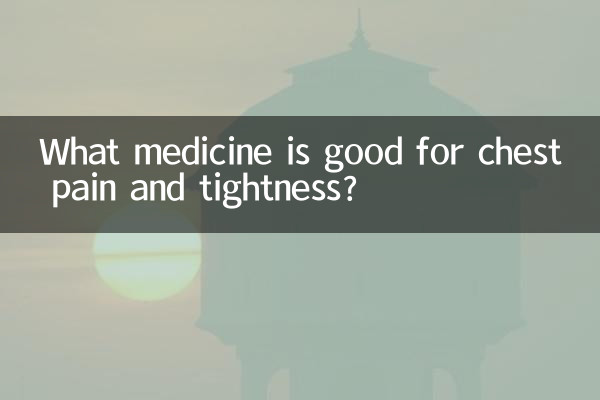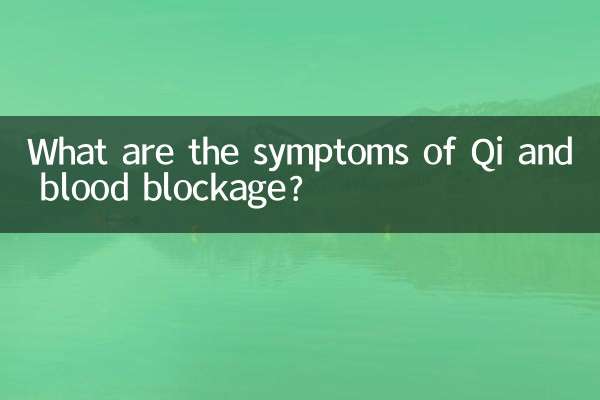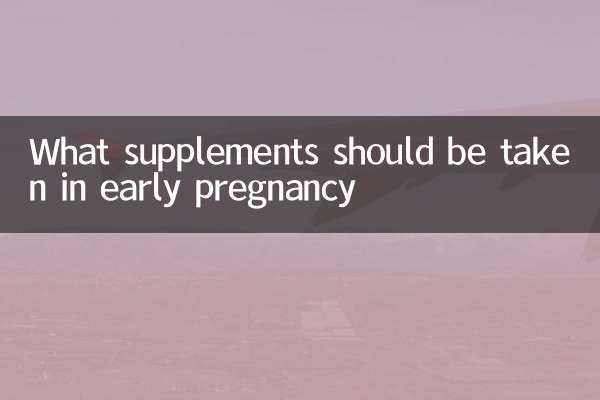What medicine is good for chest pain and tightness?
Chest pain and tightness are common symptoms and can be caused by a variety of causes, such as heart problems, respiratory problems, digestive problems, or psychological factors. For different causes, medication regimens are also different. The following are related topics and structured data that have been hotly discussed across the Internet in the past 10 days to help you understand medication recommendations for chest pain and tightness.
1. Common causes and corresponding drugs

| Cause | Symptom characteristics | Recommended medicine | Things to note |
|---|---|---|---|
| Angina pectoris | Squeezing pain behind the sternum, worsened by activity | Nitroglycerin, aspirin, beta-blockers | Seek medical attention immediately to avoid delays in treatment |
| gastroesophageal reflux | Burning sensation behind the breastbone after meals, accompanied by acid reflux | Omeprazole, ranitidine, aluminum magnesium carbonate | Avoid greasy food and eat small meals frequently |
| anxiety disorder | Chest tightness accompanied by palpitations and sweating without clear triggers | Paroxetine, Lorazepam (short term) | Psychological counseling is needed to avoid long-term dependence on drugs |
| respiratory tract infection | Chest pain with cough and fever | Antibiotics (such as amoxicillin), cough medicine | Medication is required after diagnosis by a doctor |
2. Emergency treatment of chest pain and tightness
If chest pain occurs suddenly and persists, especially if it is accompanied by the following symptoms, seek medical attention immediately:
3. Hot topics discussed by netizens
| topic | heat index | Main point |
|---|---|---|
| Correct usage of nitroglycerin | ★★★★★ | Take it sublingually. If no relief occurs within 5 minutes, repeat once. |
| The effect of traditional Chinese medicine on chest pain | ★★★☆☆ | Salvia miltiorrhiza, Panax notoginseng and other drugs for promoting blood circulation and removing blood stasis are attracting attention |
| Causes of chest pain in young people | ★★★★☆ | Increased functional chest pain caused by staying up late and being stressed |
4. Medication precautions
1.Avoid self-diagnosis:Chest pain may be a sign of a serious illness, and the cause needs to be determined before taking medication.
2.Drug interactions:Taking aspirin with anticoagulants can increase the risk of bleeding.
3.Special groups:Pregnant women and those with liver and kidney dysfunction need to adjust the dose.
5. Prevention and life suggestions
| measure | Specific methods | Effect |
|---|---|---|
| diet modification | Low salt and low fat, avoid overeating | Reduce burden on heart and stomach |
| regular exercise | 150 minutes of moderate-intensity aerobic exercise per week | Improve cardiovascular function |
| stress management | Meditation, deep breathing exercises | Reduce the incidence of anxiety-related chest pain |
Summary: Medications for chest pain and chest tightness need to be used with caution, and the key is to identify the cause. The drug recommendations provided in this article are for reference only. Please follow your doctor's advice for specific treatment options. If symptoms persist or worsen, be sure to seek medical attention promptly.

check the details

check the details